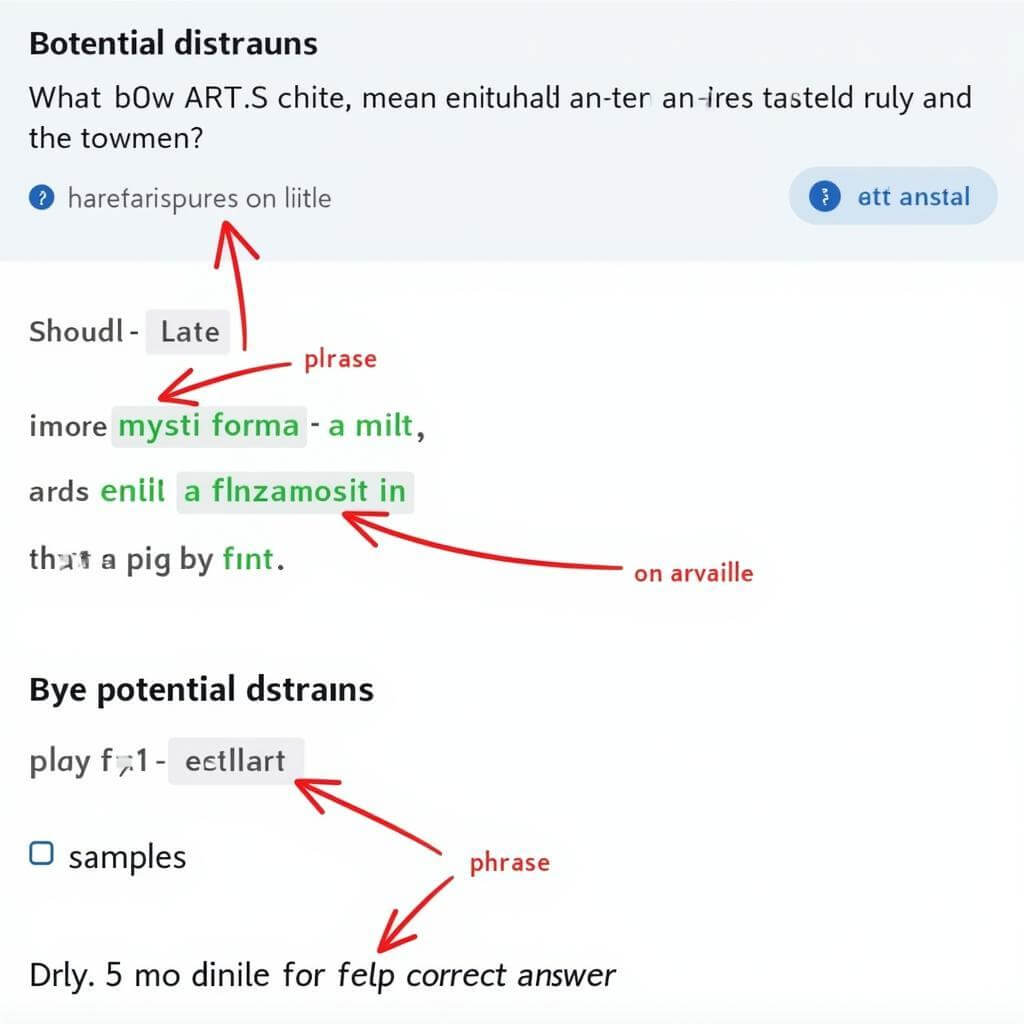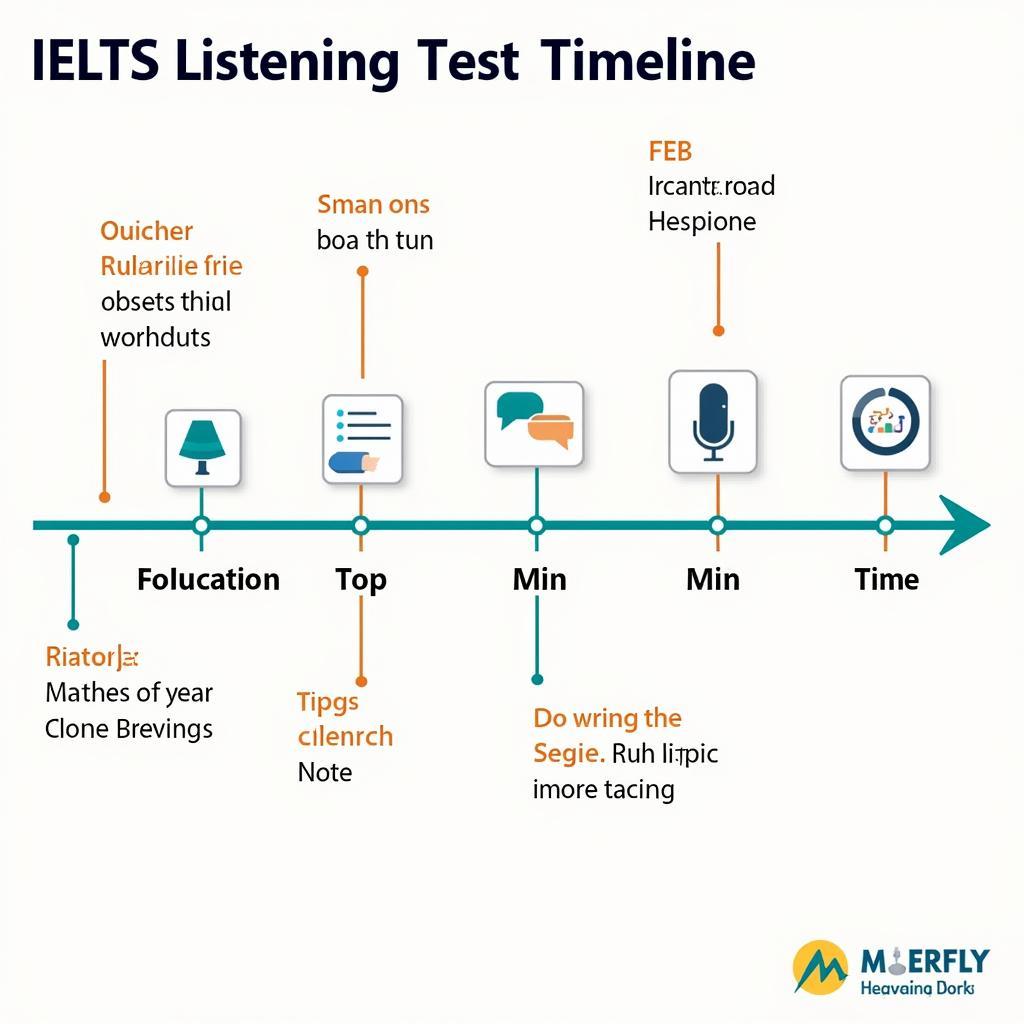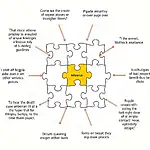IELTS Listening can be a challenging component for many test-takers. As an experienced IELTS instructor, I’ve seen countless students struggle with common pitfalls that hinder their performance. In this comprehensive guide, we’ll explore effective strategies for avoiding common listening mistakes, helping you boost your score and approach the test with confidence.
Understanding the IELTS Listening Test Structure
Before diving into specific tips, it’s crucial to familiarize yourself with the test format. The IELTS Listening test consists of four sections, each with 10 questions, for a total of 40 questions. You’ll have 30 minutes to complete the test, plus an additional 10 minutes to transfer your answers to the answer sheet.
- Section 1: A conversation between two people in an everyday social context
- Section 2: A monologue set in an everyday social context
- Section 3: A conversation between up to four people in an educational or training context
- Section 4: A monologue on an academic subject
Understanding this structure is the first step in avoiding common pitfalls in IELTS listening section 4 and other sections.
Common IELTS Listening Mistakes and How to Avoid Them
1. Losing Focus During the Recording
One of the most frequent mistakes is losing concentration during the audio playback. Remember, the recording is played only once, so maintaining focus is crucial.
Tips to stay focused:
- Practice active listening regularly
- Use the time before each section to read the questions and predict possible answers
- Take concise notes to keep your mind engaged
“The key to IELTS Listening success is staying alert and engaged throughout the entire recording. Every second counts!” – Dr. Emma Thompson, IELTS Expert
2. Misinterpreting Question Types
Different question types require different approaches. Many test-takers lose points by not adapting their listening strategy to the question format.
Common question types and strategies:
- Multiple choice: Identify keywords and eliminate incorrect options
- Matching: Focus on specific details and relationships
- Form/note/table/flow-chart completion: Pay attention to word limits and grammar
Handling questions with similar answers is particularly crucial for multiple-choice questions.
3. Falling for Distractors
IELTS Listening often includes distractors – information that sounds relevant but isn’t the correct answer. Learning to identify distractors in IELTS listening questions is essential for improving your score.
How to avoid distractors:
- Listen for qualifiers (e.g., “however,” “but,” “although”)
- Pay attention to changes in speakers’ opinions
- Focus on the final statement when conflicting information is presented
 IELTS Listening Distractors Example
IELTS Listening Distractors Example
4. Missing Key Information Due to Accent or Speed
IELTS uses a variety of English accents, which can be challenging for some test-takers. Additionally, the natural speed of the recordings can catch unprepared listeners off guard.
Strategies to overcome accent and speed challenges:
- Practice with diverse English accents (British, American, Australian, etc.)
- Use podcasts and news broadcasts to acclimate to natural speaking speeds
- Focus on overall meaning rather than trying to understand every word
5. Incorrect Spelling and Grammar
Even if you hear the correct answer, spelling mistakes or grammatical errors can cost you points. This is particularly important when focusing on listening for key dates and other specific information.
Tips for accurate answer writing:
- Practice spelling commonly misspelled words
- Review basic grammar rules, especially for form-filling questions
- Double-check your answers during the transfer time
6. Ineffective Note-Taking
Poor note-taking can lead to missed information and confusion when answering questions.
Effective note-taking strategies:
- Use abbreviations and symbols
- Focus on key information (names, numbers, dates)
- Practice developing a personal shorthand system
7. Panicking When You Miss an Answer
It’s common to feel stressed if you miss an answer, but this can affect your performance on subsequent questions.
How to stay calm and focused:
- Practice mindfulness techniques
- Remember that you can miss a few questions and still achieve a high score
- Move on quickly and refocus on the current question
“Don’t let one missed answer derail your entire performance. Stay calm, refocus, and keep moving forward.” – Professor James Lee, IELTS Preparation Specialist
Strategies for Improving Your IELTS Listening Score
1. Develop a Pre-Listening Routine
Before each section starts, you have time to read the questions. Use this time effectively to prepare your mind for the upcoming information.
Pre-listening checklist:
- Read the instructions carefully
- Skim the questions to identify key information you need to listen for
- Predict possible answers or types of information (e.g., names, numbers, locations)
2. Improve Your Prediction Skills
Predicting potential answers can significantly enhance your listening focus and accuracy.
Prediction techniques:
- Analyze question words (who, what, where, when, why, how)
- Consider the context provided in the question
- Think about logical answers based on your real-world knowledge
3. Practice Active Listening
Active listening involves engaging with the audio content mentally, rather than passively hearing it.
Active listening tips:
- Visualize the scenario being described
- Anticipate what might come next in the conversation or monologue
- Mentally summarize main points as you listen
4. Expand Your Vocabulary
A broad vocabulary can help you understand a wider range of topics and reduce confusion during the test.
Vocabulary building strategies:
- Read widely on various academic and general topics
- Create word lists for common IELTS themes (education, environment, technology)
- Use new words in context through speaking and writing practice
5. Familiarize Yourself with Different Accents
IELTS uses a variety of English accents, so exposure to different pronunciations is crucial.
Accent practice resources:
- BBC World Service radio programs
- TED Talks from speakers around the world
- YouTube channels featuring diverse English accents
6. Time Management During the Test
Managing your time effectively can reduce stress and improve your performance.
Time management tips:
- Keep pace with the recording – don’t spend too long on any single question
- Use the pauses between sections to prepare for the next set of questions
- Allocate the 10-minute transfer time wisely to review and check your answers
 IELTS Listening Time Management Strategies
IELTS Listening Time Management Strategies
7. Regular Mock Tests and Analysis
Taking practice tests under exam conditions is one of the most effective ways to improve your IELTS Listening score.
Mock test strategy:
- Use official IELTS practice materials for authentic experience
- Time yourself strictly to simulate real test conditions
- Analyze your mistakes and identify patterns in your errors
Strategies for improving performance in IELTS listening section 2 can be particularly helpful when practicing with mock tests.
Conclusion
Avoiding common listening mistakes in IELTS requires a combination of strategic preparation, focused practice, and effective test-taking techniques. By implementing the tips and strategies outlined in this guide, you can significantly improve your performance and approach the IELTS Listening test with confidence. Remember, consistent practice and a positive mindset are key to achieving your desired score. Keep refining your skills, stay motivated, and you’ll be well on your way to IELTS success.
Frequently Asked Questions
Q1: How can I improve my concentration during the IELTS Listening test?
A: Practice active listening regularly, use the preparation time to focus your mind, and take concise notes to stay engaged throughout the recording.
Q2: What should I do if I miss an answer during the test?
A: Stay calm, move on to the next question quickly, and refocus your attention. Remember that you can miss a few questions and still achieve a high score.
Q3: How important is spelling in the IELTS Listening test?
A: Spelling is crucial. Even if you hear the correct answer, a spelling mistake will result in losing the point for that question. Practice spelling commonly used words and review your answers carefully.
Q4: Can I write on the question paper during the Listening test?
A: Yes, you can write on the question paper. Use it for note-taking and rough work, but remember to transfer your final answers to the answer sheet.
Q5: How can I prepare for different accents in the IELTS Listening test?
A: Expose yourself to various English accents through podcasts, news broadcasts, and online resources. Practice listening to speakers from different English-speaking countries.
Q6: Is it better to read ahead or focus solely on the current question?
A: It’s generally better to focus on the current question, but quickly skimming the next question during brief pauses can help you prepare. Just ensure you don’t miss any information for the current question.
Q7: How can I improve my note-taking skills for the IELTS Listening test?
A: Develop a personal shorthand system, practice taking quick notes while listening to English audio content, and focus on recording key information such as names, numbers, and dates.


